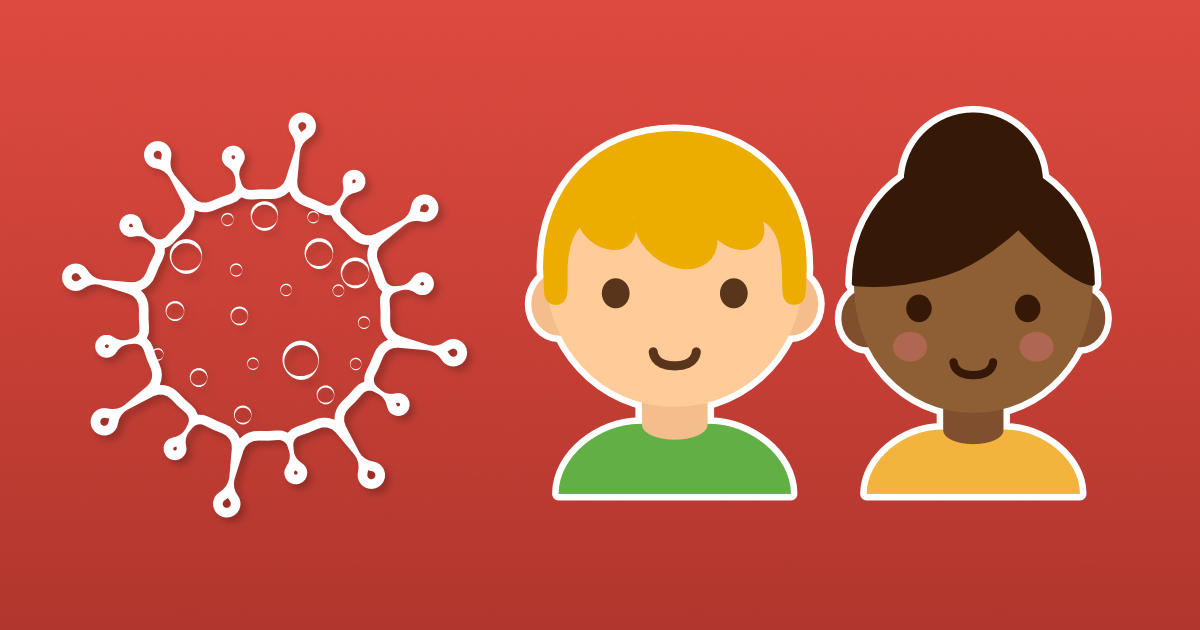Coronavirus is all over the media at the moment.
On the TV. On the radio. On social media.
And with this flood of information, children can't help but overhear stories (or conversations) that might make them scared.
A trusted adult sharing appropriate information with them can calm their nerves... and dispel myths they've picked up on the playground or the internet.
It's important that key adults give them enough information to protect themselves. But not too much, so it causes them unnecessary worry or panic.
So 3 obvious questions spring to mind:
- What's the right approach to talking to children about coronavirus?
- What's the right amount of information to give them - so they can protect themselves without causing unnecessary worry?
- How do you explain the situation to pupils with special educational needs?
Getting it right is crucial. So we've found these 3 online resources to help teachers and parents strike the right balance with school-aged children.
A story about coronavirus
This free, downloadable story about coronavirus by Elsa Support present the facts in a clear, understandable way.
Full of colourful pictures and clear text, this resource is particularly well-suited to primary aged children. It covers the facts in a non-alarmist way and helps children make sense of what is happening by comparing the outbreak to other viruses.
It talks about:
- What coronavirus is
- The symptoms of coronavirus
- What to do if you are worried
At the end of the story, it explains to children how they can be a superhero and help slow down the spread of the virus.
And by presenting the information in storybook-type format, Elsa Support are delivering the facts in a way that may put children more at ease.
Talking to anxious children about coronavirus
This article from the ADAA gives advice to parents about how to discuss coronavirus without causing panic or anxiety.
It highlights how the constant news cycle, with its emphasis on the dangers of the virus (without putting those dangers in context), can be overwhelming, confusing and scary to a child or teen.
The article gives a series of tips about communicating with children that include:
- Modelling calmness
- Maintaining as many normal routines as possible
- Listening actively to the child's concerns
- Acknowledging those concerns (rather than dismissing them)
- Limiting excessive reassurance
- Practising relaxation strategies
Full of practical advice, this article is essential for any adult wanting to discuss the pandemic with their child (or student) in a way that helps them manage their anxieties successfully.
11 expert tips for talking to your child about COVID-19
This article from ADDitude about explaining Coronavirus to children with special needs as "the Olympics of special-needs parenting".
In the words of Lidia Zylowska, M.D, "a critical part of the preparation is to not let anxiety and worry overtake our families."
Included in the 11 expert tips are:
- When talking to children, take the approach of starting by asking your child question about their concerns, then following with facts
- Limiting exposure to the news
- Not over-sharing (unless children ask you directly, minimise discussion of the topic in the family home)
- Reminding your child of the altruistic purpose of self-isolation
- Managing your own anxieties - so you can support children with theirs
Key takeaways
We do need to talk to children about coronavirus. Otherwise, there will be an information gap... which may be filled by stories on the playground or half-truths on social media.
These 3 web resources will:
- Help you give children information in a simple, clear way
- Put their concerns in perspective
- Give them coping strategies to manage any worries.
And remember: use recommended government websites to find out the real facts about coronavirus, rather than relying on social media where little or no fact-checking occurs.

